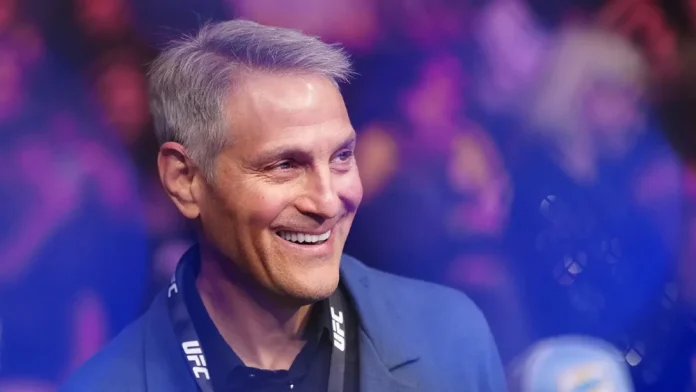The debate over who is the Greatest of All Time (G.O.A.T.) in sports has long been a topic of fierce discussion among fans, analysts, and athletes alike. Whether it’s basketball, football, soccer, or any other major sport, the question of who stands at the pinnacle is more than just a casual conversation—it sparks intense emotion, diverse opinions, and often divides even the most knowledgeable sports enthusiasts. The G.O.A.T debate encompasses more than just stats and accolades; it’s about legacy, influence, and the impact a player has had on their sport and the world. But, as the debate rages on, one fundamental question arises: what truly makes a player the greatest of all time?
The answer is complicated. For many, the G.O.A.T designation is often tied to tangible accomplishments like championships, MVP awards, and records. In basketball, names like Michael Jordan and LeBron James dominate the conversation. Jordan, with his six NBA championships and five MVPs, is frequently cited as the G.O.A.T because of his dominance during the 1990s, his flawless Finals record, and his undeniable cultural impact. His competitive nature and clutch performances in pivotal moments helped shape the NBA into a global phenomenon. LeBron, on the other hand, is often seen as the modern G.O.A.T contender due to his longevity, versatility, and sustained excellence. With four championships and multiple MVPs across three different teams, LeBron’s ability to remain at the top of his game over nearly two decades speaks to his unique skill set and influence.
But it’s not just about the raw numbers. The G.O.A.T title involves a certain “aura”—an intangible quality that transcends statistics. This is where players like Michael Jordan and LeBron James separate themselves. Their ability to elevate the game, both on and off the court, has shaped the trajectory of basketball. Jordan’s impact on the game extended beyond just his performance; he revolutionized how athletes brand themselves and interact with fans, paving the way for future generations of athletes to build global legacies. LeBron has done much the same, using his platform not only to advocate for social issues but also to demonstrate that athletes can control their own narratives and careers.
In football, the G.O.A.T conversation often centers around Tom Brady, whose seven Super Bowl championships—more than any other player in NFL history—cement his place in the discussion. Brady’s longevity, ability to perform in clutch situations, and success in leading multiple teams to championships have made him an icon in the sport. His consistency, mental toughness, and leadership are often cited as the reasons why he’s considered the greatest quarterback of all time, despite entering the NFL as a sixth-round draft pick and facing doubts about his athleticism early in his career.
While championships and individual accolades are essential when considering the G.O.A.T status, the influence of a player on their sport cannot be overlooked. In soccer, the debate between Lionel Messi and Cristiano Ronaldo is one of the most passionate and debated in all of sports. Messi’s vision, dribbling, and playmaking ability have led him to become one of the most admired athletes of his generation, while Ronaldo’s unparalleled work ethic, goal-scoring record, and success in multiple leagues have earned him a place in the G.O.A.T conversation as well. Both players have broken countless records and delivered unforgettable performances, but it is their influence on soccer that solidifies their place in history. Messi’s ability to inspire a generation of young players, particularly in his home country of Argentina, speaks to his cultural impact. Ronaldo, with his relentless pursuit of greatness and larger-than-life personality, has similarly influenced how modern athletes approach their craft, as well as how the sport is marketed.
The G.O.A.T debate often transcends the confines of sports itself, becoming part of broader cultural discussions. Icons like Muhammad Ali, who transcended boxing to become a symbol of social change and human rights, challenge the idea that greatness is defined solely by athletic achievement. Ali’s influence on the civil rights movement and his ability to capture the world’s attention with his charisma and activism elevate him beyond just his accomplishments in the ring. He was a trailblazer who showed that athletes could be more than just competitors—they could be agents of change.
In tennis, the debate over who is the greatest between Roger Federer, Rafael Nadal, and Novak Djokovic has been equally heated. All three have won multiple Grand Slam titles and have dominated the sport for years, with each player having his unique strengths and moments of brilliance. Federer, with his elegance and effortless style, revolutionized the game and made tennis more accessible to a global audience. Nadal’s unmatched tenacity and dominance on clay have made him a force to be reckoned with, while Djokovic’s mental toughness and versatility across all surfaces make him a strong contender for the G.O.A.T title. The question of who is truly the greatest often depends on what qualities one values more: Federer’s consistency, Nadal’s passion, or Djokovic’s all-around excellence.
However, the G.O.A.T debate is not without its critics. Some argue that the very idea of ranking athletes in this way is flawed, as it fails to account for the changing nature of sports, the evolution of the game, and the different contexts in which each player competed. The athletes of previous generations may not have had access to the same training methods, equipment, or resources as today’s players, which makes direct comparisons difficult. Additionally, the G.O.A.T conversation often ignores the contributions of lesser-known athletes who have had a lasting impact on their sports, as well as the role of teammates and coaches in achieving success.
What the G.O.A.T debate ultimately highlights is the fact that greatness is subjective. There are many different ways to define and measure it, and each fan may have their own criteria for determining who stands above the rest. Some prioritize championships, others focus on individual achievements or influence, and some consider a combination of factors. In the end, the conversation is a reflection of the passion and love that fans have for the game and the athletes who elevate it.
Ultimately, the G.O.A.T debate will continue to be a topic of discussion for as long as sports exist. The athletes who deserve the title will always leave a lasting mark on their respective games, but the question of who is the greatest may never be fully answered. What matters most is that these athletes continue to inspire the next generation and push the boundaries of what is possible in their sports. In the end, greatness is not just about being the best in the world, but about leaving a legacy that resonates beyond the confines of the playing field.
4o mini




